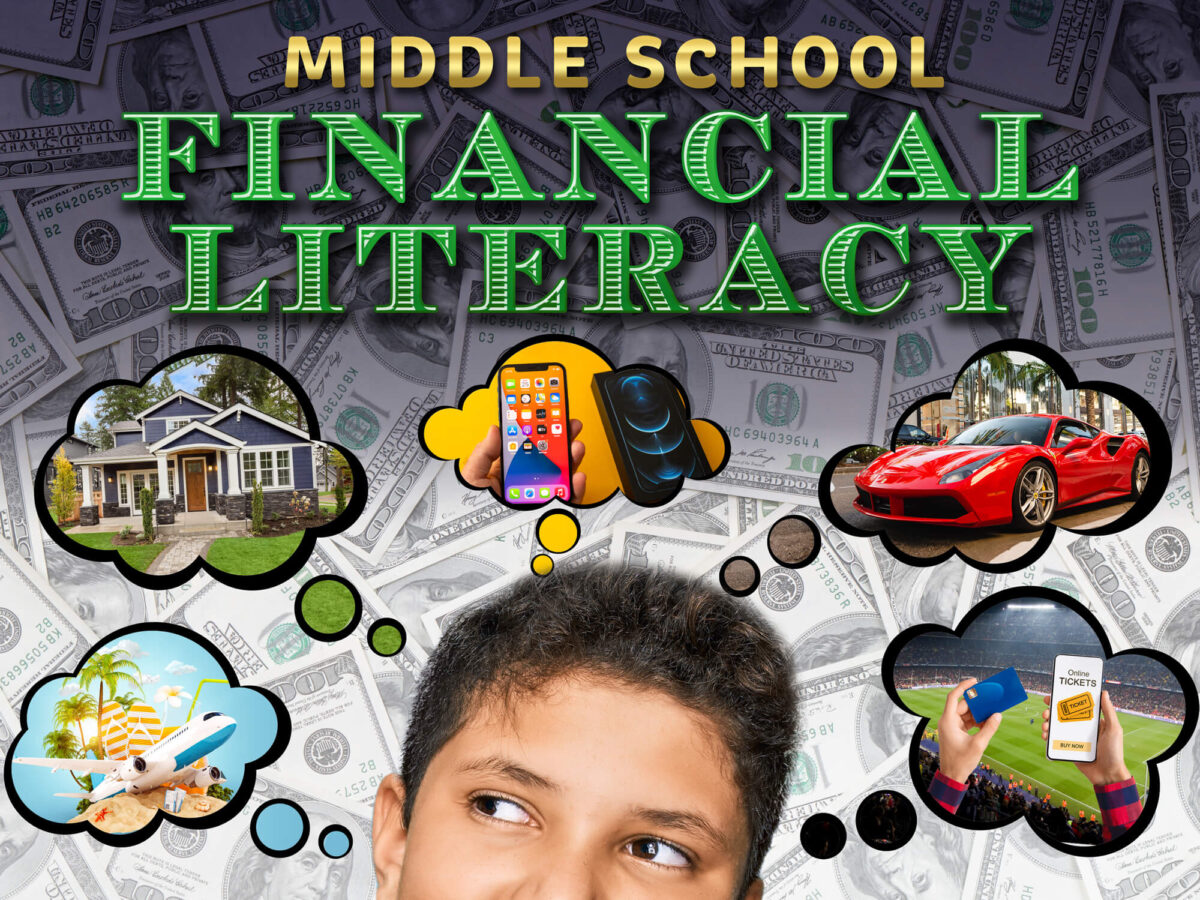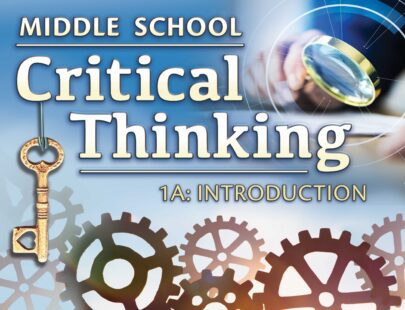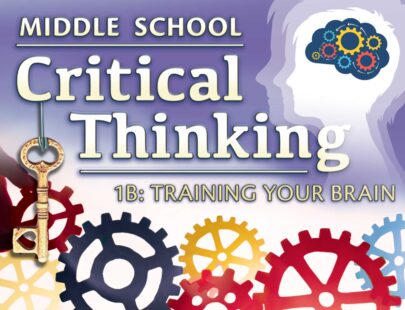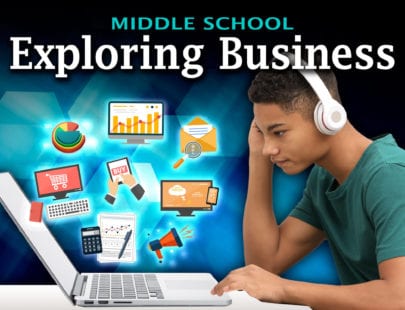
Middle School Financial Literacy
“Money makes the world go round,” but that’s only because we move it through exchanges, transactions, and financial tools. In this course, you will examine how our economy works through decisions about spending and saving, lending and borrowing, and how institutions play a key role in moving money. You will also explore how credit and interest work, investing, and what you can expect to earn over the length of your career. Once all of the pieces are in place, you’ll discover how you can begin investing in yourself today so your future is everything you dream it can be. Let’s get started!
Units at a Glance
Unit 1: Making Sense of Dollars and Cents
Believe it or not, there are only two things you can do with your money—spend it or save it. Ask someone for a third option, and they too will realize there isn’t one. Using money involves either saving it or spending it—sometimes both! And using your money wisely means saving it and spending it in ways that will help you achieve your financial goals. But before you use money wisely, you have to know how and where to save, as well as when and what to buy. Figuring this out doesn’t happen on its own. You’ll need to master some basic skills and put them into practice in order to manage your money effectively. By planning this ahead of time, you can have enough money to meet both your short-term lifestyle needs and long-term goals and dreams.
What will you learn in this unit?
- Create a sound personal budget
- Identify the institutions that help to manage funds
- Explain how the money system relates to the market economy
- Describe different motivations for making spending decisions
Unit 2: Working to Your Credit
Believe it or not, using credit and holding debt should be a part of your long-term budgeting plan. This may seem contradictory—after all, aren’t you supposed to avoid using credit as much as possible? And isn’t debt a bad thing? Actually, no. When it comes to budgeting, saving, and healthy spending habits, making use of appropriate credit options and regularly delivering on debt payments will boost your purchasing power and overall economic status in the game of life. By adopting some basic borrowing and spending habits early on, you’ll begin developing a strong track record in the world of credit—and the better off you will be.
What will you learn in this unit?
- Explain how credit works
- Identify various ways to borrow money
- Describe the relationship between debtors and creditors
- Determine ways that debt can be managed responsibly
Unit 3: The Outcome of Income
Making money is the first step towards building a bright financial future. You might first earn some cash by securing a summer job, picking up some part-time work, or maybe doing odd jobs for friends. But once you start earning some money, you have begun the process of achieving your financial goals. Before you rush in to planning for retirement, however, you should understand some important points related to the work you perform and the money you earn. Are you still waiting to earn your first paycheck? When you finally get paid, you may find that the amount is less than you expected. Taxes and other deductions reduce the amount of money you actually receive for your work. Another factor that affects income level is that different kinds of work earn different amounts of pay. That means your career choice will largely determine the amount of money you make. The good news is that the earlier you realize how these and other aspects affect your expected income level, the better prepared you will be for the financial journey ahead.
What will you learn in this unit?
- Explain the impact of education on your financial future
- Identify various types of income
- Describe how and why gross and net income are not the same
Unit 4: The Value of Investing
Investing when you are young is a great way to build wealth and save for important financial goals. The sooner you begin investing, the easier it will be to build your savings over your lifetime. Although some of the ins and outs of investing can seem complicated, starting is really much easier than you might think. In this unit, you will get a handle on how investing works, recognize the investment options you have available to you, and what you can expect to face once you begin the journey.
What will you learn in this unit?
- Explain how the concept of investing works
- Recognize the forces impacting rates of return
- Identify different types of investment options
- Describe the first steps to take in stock market investing
Unit 5: Running Up Against Risk
Everywhere we turn, risk is all around us in some form or another. We often become blind to risk because the probability of a potential risk becoming a painful reality is so unlikely. We trick ourselves into thinking the worst can’t happen. But building financial health and wealth effectively and continuously means learning to manage risk in the most effective ways possible. In this unit, you’ll learn how risk plays a role in every part of our lives, and you’ll also learn about the tools that give you the best shot at effectively managing risk. Recognizing the many forms of risk that have the potential to wreck you on your journey to financial growth and security and learning how to reduce them will send your financial skill set and abilities to the next level!
What will you learn in this unit?
- Identify the main types of personal and financial risk
- Explain how insurance can help to transfer and limit risk
- Describe various types of insurance and how they work
Unit 6: Crafting Your Financial Plan
Making your own money and deciding how you will spend it in the future is very exciting. You’ve just leveled up, and your journey to winning the game of wealth begins with a look at your current financial situation. We all do this—people of all ages and income levels. No matter how old you are, how much money you make, or what your job is, we all need to assess and track money coming in, money going out, and make sure that we have enough for our futures. This starts with building a solid plan and avoiding the risks and pitfalls along the way. A responsible approach to money management takes into account where you’re starting from, the goals you want to reach, and the steps you’ll take to get there. Sticking to your plan each day can lead to a bright financial future for many years to come.
What will you learn in this unit?
- Identify benefits of being financially responsible
- Describe sources of credible consumer information
- Explain how to protect valuable personal and financial information
- Create and maintain a financial plan based on personal goals
Required Materials
Physical
- Calculator
- Video recording device
Software
- Word processing software
Other
- Helper
Optional
- Art supplies
- Audio recording device
- Digital camera
- Graphic design software
- Posterboard
- Presentation software
- Spreadsheet software




